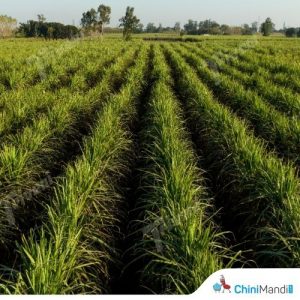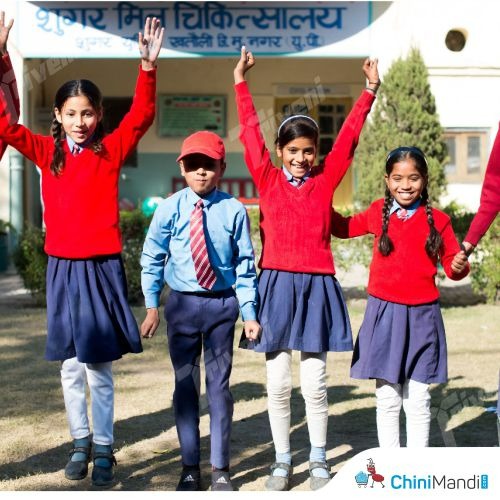India, the world’s second-largest sugar producer, contributes around 20% to global sugar production. The country’s sugar industry significantly influences rural life, benefiting approximately 50 million sugarcane farmers and providing direct employment to around 500,000 people in sugar mills as well as supporting a vast ecosystem of ancillary activities. Beyond its economic role, it serves as a cornerstone of socio-economic development, fostering stability, growth and enhanced economic conditions in rural communities across the country.
Given its extensive influence, the sugar industry is well-positioned to drive significant community development through Corporate Social Responsibility (CSR) and Environmental, Social, and Governance (ESG) initiatives. Sugar companies can contribute to sustainable farming, education, healthcare, and environmental conservation. By adopting eco-friendly production methods, managing water resources, and promoting renewable energy, these companies can ensure environmental sustainability. Additionally, supporting small farmers through fair pricing, modern agricultural techniques, and other assistance can enhance the livelihoods of local communities, fostering economic growth and sustainability in rural areas.
Enriching the Lives of Farmers

Triveni Engineering & Industries Ltd. (Triveni) is dedicated to positively impacting society through its CSR and ESG initiatives. With a farmer network of over 335,000, TEIL supports sugarcane development and socio-economic growth. The Company focuses on continuous communication with farmers, offering counseling, education, and soil health improvements to boost productivity and yields.
At the heart of Triveni’s sustainable growth strategy is its comprehensive sugarcane development programme. This program employs a six-pronged approach to improve planting, cultivation, crop protection, and harvesting techniques. This includes a structured varietal substitution programme addressing red rot issues with the Co0238 variety by introducing disease-resistant, high-sugar alternatives. The Company also emphasises agronomic interventions such as wide spacing and trench planting, and promotes before-wheat planting and ratoon management to boost yields.
Active farmer engagement is a cornerstone of Triveni’s efforts, demonstrated through model plots yielding 40-50% more than typical fields. These plots showcase advanced practices and educate farmers on replicating them to enhance their own yields and income. Additionally, Triveni rigorously supports farmers in mitigating disease severity through a structured surveillance program, which includes using healthy planting materials, certified seeds, field sanitation, crop rotation, proper drainage, and bunding in infected fields. The Company also enhances farm implements and mechanisation to reduce labour intensity and drive economic benefits.
Digital Initiatives for Farmer Support

Triveni is making significant strides in digital technology to empower farmers and enhance sugarcane farming. The Company utilizes GPS technology to provide real-time information on weather, disease, and other matters. Satellite mapping and drone-based chemical spraying technologies are employed for effective disease management.
The Triveni Cane platform, a dedicated portal and app, revolutionizes farmer engagement by offering valuable insights such as soil testing, fertilizer recommendations, and plot-specific guidance. It facilitates seamless communication between farmers and experts through text and voice messaging in English and Hindi, and utilises GPS technology for procurement and real-time updates. The platform’s impact is evident with 1.98 lakh farmers using it regularly, over 1 lakh queries resolved, and 9.25 lakh farmer plots mapped.
Environmental Focus

Aligned with the Government’s sustainability goals, Triveni is deeply committed to environmental stewardship. The Company integrates various eco-friendly strategies into its operations, focusing on energy efficiency, optimising production processes, and using environment friendly materials to minimise its impact. With a 104.5 MW co-generation capacity in its Sugar business, the Company significantly reduces its carbon footprint and meets nearly all the captive power needs for its sugar and distillery units. In its Power Transmission business, it promotes a green economy by adopting LED lighting, utilizing captive wind capacity for about 85% of its power needs, and optimising fuel consumption through sea routes.
Triveni’s commitment to Water and wastewater management is evident in its role as a leading player in providing integrated municipal and industrial solutions, having executed over 100 projects nationwide. The Company has also installed water treatment plants across its own operations to ensure zero liquid discharge, minimising groundwater extraction and safeguarding soil health and biodiversity. Additionally, the Power Transmission business features rainwater harvesting with an 8 lakh litre sump capacity, which is used entirely for cooling and gardening purposes.
Moreover, the Company effectively utilise co-products from its Sugar and Distillery operations to produce value-added products, thereby minimising environmental impact. Key efforts include co-generation using bagasse for power, converting molasses into ethanol, selling potash-rich ash for fertilizer production, capturing CO2 for sale as liquid CO2 and dry ice, using fly ash for brick manufacturing and soil enrichment, and employing press mud as organic manure with plans to convert it into renewable biogas.
Triveni also promotes sustainable agriculture practices in sugarcane farming by improving soil health, enhancing irrigation efficiency, using integrated pest management, and encouraging intercropping. The Company’s sustainable sourcing strategy ensures effective vendor selection based on sustainable requirements, aligning their performance with Triveni’s goals. This includes efficient logistics for Sugar business, outsourcing to approved vendors for Power transmission, compliance-based vendor selection for Water business, and monitored transport arrangements for alcohol feedstock.
Overall the Company achieved a 29% increase in renewable energy electricity consumption in FY 24 as compared to FY 23 and made significant reductions in water extraction and consumption.
Other CSR Initiatives

Beyond its environmental efforts, the Company continues to empower its communities through a range of impactful CSR initiatives. With an investment of ₹11.37 crore in community projects, the Company has positively impacted over two lakh lives across various sectors, including education, healthcare, women empowerment, sports promotion, and environmental sustainability.
In education and women empowerment, Triveni supports schools in Khatauli, Deoband, and Ramkola, providing free or subsidised education and upgrading facilities with computers to enhance educational standards. The Company also extends financial support to a Nursing School, aiming to improve teaching standards and promote women empowerment.
In healthcare, Triveni has organized several programs to address the needs of lower socio-economic strata in Delhi. These include screenings for cancer, osteoporosis, and anemia, as well as a preventive health check-up program for young girls focusing on developmental and behavioral problems. The Company also conducts a newborn screening program for congenital conditions and hearing loss. Through the Triveni Foundation, the Company operates four mobile healthcare vans (Mobile Chikitsa) in Uttar Pradesh, providing community-based healthcare in collaboration with the Jubilant Bhartia Foundation, reaching around three lakh farmers.
The Company also supports the India Youth Soccer Association, which aids economically disadvantaged youth in North India by providing kits, footballs, and training equipment through the Josh Rural project.
Through these comprehensive efforts, Triveni Engineering & Industries Ltd. not only contributes to the socio-economic development of rural India but also ensures that its CSR and ESG initiatives significantly impact the well-being of the communities it serves.













Congratulation to all team work